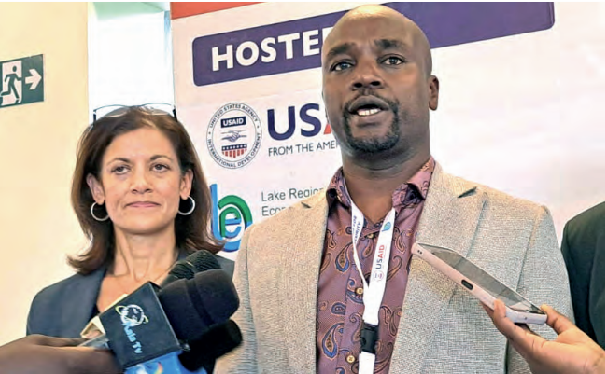Governors of the Lake Region Economic Bloc have reaffirmed their collective obligation to secure access to clean and safe water for all residents in their respective counties.
They said Water security is essential for social and economic development and remains a basic human right.
The governors committed to expanding water service coverage and improving sanitation, especially in underserved rural areas, to ensure reliable access for current and future generations.
They also vowed environmental sustainability commitment to sustainable environmental practices including protecting and rehabilitating critical water catchment areas and ecosystems.
They recognized their duty to conserve these resources, particularly the Mau Forest Complex and Lake Victoria basin, and pledged to accelerate restoration efforts to ensure long-term environmental sustainability.
The governors acknowledged that addressing these challenges requires collective action asserting that the bloc is committed to fostering inter-county collaboration on shared water resources, particularly rivers, lakes, and aquifers.
‘We will enhance institutional frameworks to promote cooperation, ensuring that water resources are managed equitably and sustainably.’ They said.
The Lake Region is highly vulnerable to climate change impacts such as floods and droughts, which affect water security hence the commitment to integrating climate resilience into water management strategies.
The group recognized the importance of developing bankable proposals that can attract investment and support from the Water Services Trust Fund and other financiers.
‘We will collaborate with our technical teams to create viable, well-structured proposals that align with regional and national priorities for water security.’ They vowed.
They resolved to promote equity and inclusivity in water distribution. Water security must be inclusive and equitable, ensuring that every county and community in the Lake Region benefits from the already ongoing initiatives.
Commitments to address disparities in access to water and sanitation services, particularly in marginalized and rural areas were also made resolving to form water basin committees to enhance the management of water resources at the regional level.
These committees, they noted, will include representation from counties that share key water bodies and will work to oversee the sustainable management of watersheds, rivers, and lakes. Their role will be crucial in addressing cross-county water management issues, ensuring that water resources are used fairly and efficiently.
The governors acknowledged the crucial role that the private sector can play in addressing water and sanitation challenges and promised to promote private sector-led innovative financing mechanisms to fund water infrastructure and sanitation projects. Public-private partnerships will be prioritized to leverage the expertise and resources of the private sector, thereby enhancing service delivery in the region.
YOU MAY ALSO READ:
Kenya Pipeline Corporation expands fuel transport with new vessel on Lake Victoria
The region will continue to adopt energy-efficient technologies, such as solar-powered water schemes, to reduce operational costs and improve sustainability.
Additionally, the governors said, they will urge utility companies like Kenya Power to introduce special tariffs for water projects to make water services more affordable. By investing in renewable energy solutions, we aim to ensure the long-term sustainability of water infrastructure.
The governors said they will deepen their collaboration with local and international research institutions to explore innovative solutions for water management.
They committed to extending water infrastructure to underserved areas, focusing on building new systems and rehabilitating existing ones.
This, they said, will ensure that rural communities, which are often the most vulnerable, benefit from our collective efforts. They also vowed to take concrete steps to reduce water loss by improving infrastructure, enhancing accountability in water utilities, and introducing better management practices.
By Fredrick Odiero
Get more stories from our website: Sacco Review.
For comments and clarifications, write to: Saccoreview@
Kindly follow us via our social media pages on Facebook: Sacco Review Newspaper for timely updates
Stay ahead of the pack! Grab the latest Sacco Review newspaper!



